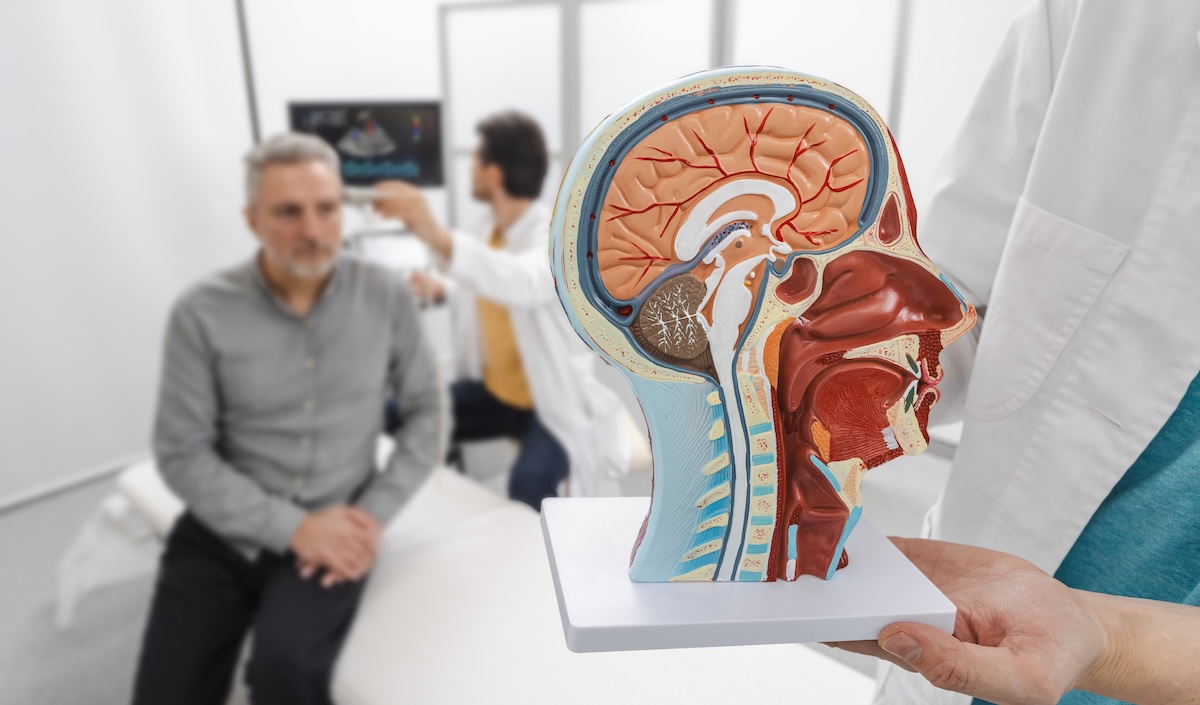Concussions are commonly recognized as injuries that happen due to a bump or blow to the head. However, it’s important to understand that they can also occur without any direct impact. Concussions, also known as mild traumatic brain injuries (TBIs), result from a forceful movement that causes the brain to move rapidly within the skull. While concussions are generally not life-threatening, they can lead to serious symptoms that may be long-lasting.
If you have sustained a concussion from a car accident, you will likely need to navigate the complicated process of dealing with insurance companies afterward. The attorneys at Cooper Hurley Injury Lawyers frequently assist people in this situation and have the resources and experience needed to guide you through the legal process and work toward the best possible outcome.
Understanding Concussions and How They Can Happen Without Head Impact
Concussions occur when the brain moves rapidly within the skull, leading to injuries of the nerves and blood vessels in the brain. This movement can happen due to various incidents that do not necessarily involve direct impact on the head, such as car accidents, falls, body-to-body collisions, and blasts. In the context of car accidents, concussions are often linked to rear-end collisions, where the head and neck experience a jolt or whip due to the sudden movement. However, concussions can also result from other types of vehicle accidents.
While concussions are classified as head injuries, it’s important to understand that the term “head injury” includes a range of injuries affecting the scalp, skull, brain, and any underlying tissues or blood vessels in the head. In contrast, brain injuries specifically refer to damage sustained by the brain itself.
What Are the Symptoms of a Concussion?
As your brain recovers from an injury, various symptoms may arise that can impact you physically, affect your cognitive function, disrupt your sleep, and alter your emotions. Brain trauma symptoms may include:
- Anxiety
- Depression
- Headaches
- Dizziness
- Fatigue
- Trouble falling asleep
- Sleeping too much
- Poor concentration and memory
- Blurry vision
- Ringing in the ears
- Nausea or vomiting
- Neck pain
- Sensitivity to noise and light
If you notice these symptoms after a crash, seek medical care promptly.
Can a Concussion Without Head Impact Cause Long-Term Problems?
Concussions that do not involve a direct impact to the head can lead to serious, long-term symptoms. One such condition is post-concussion syndrome (PCS), which occurs when the symptoms of a mild traumatic brain injury (TBI) persist for more than three months.
According to the Mayo Clinic, the development of post-concussive symptoms does not seem to be related to the severity of the initial injury. This means that even if the concussion appears to be mild, individuals who have experienced a crash could potentially suffer from life-impacting symptoms for months or even longer.
What Are the Risks of Ignoring a Concussion?
Neglecting a concussion can increase the risk of developing serious conditions, such as Second Impact Syndrome (SIS). This rare condition occurs when a person sustains a second head injury before fully recovering from the first one. The second impact may cause rapid and potentially fatal swelling of the brain.
Early diagnosis and treatment of a concussion can help reduce the risk of worsening symptoms. The Mayo Clinic recommends that individuals who have experienced a head injury see a doctor, even if they did not lose consciousness.
Why Legal Representation Matters in Traumatic Brain Injury Cases
Traumatic brain injuries are life-altering events, even when considered mild. There is no clear-cut answer on what the aftermath for an individual may look like or how long symptoms of a traumatic brain injury may linger. Getting compensation for your injuries may be critical in your recovery, especially if you are unable to work due to your injuries and need to pay medical bills.
A skilled traumatic brain injury lawyer can guide you through the complex legal process to ensure you receive the compensation you deserve, allowing you to focus on your health and recovery. At Cooper Hurley Injury Lawyers, we know how to represent you to protect your best interests during a delicate time. With over 120 years of combined experience, we have achieved record-setting results for our clients, including the largest reported recovery in Virginia for a single-car accident victim in 2020.
When you turn to us, we can do the following and more:
- Collect evidence
- Build your case
- Submit filings
- Negotiate with insurers
We offer free, no-obligation consultations, and you pay nothing unless we win your case.
Contact Cooper Hurley for Experienced TBI Legal Help
Concussions can lead to long-lasting symptoms that interfere with daily life. It is crucial to take these symptoms seriously to reduce the risk of more severe conditions developing.
If you have suffered a concussion in a car accident, seek medical attention immediately. Then, contact a knowledgeable attorney. At Cooper Hurley Injury Lawyers, our attorneys are experienced in helping individuals like you and can guide you through the medical and legal processes to ensure you achieve the best possible outcome for your case.
Contact us online or call (757) 333-3333 for a free case evaluation.



